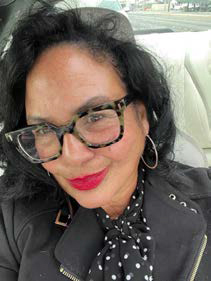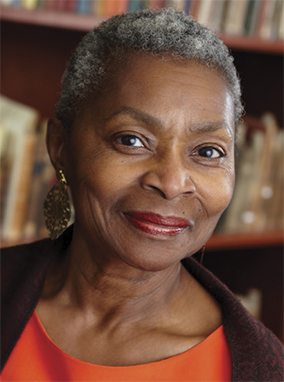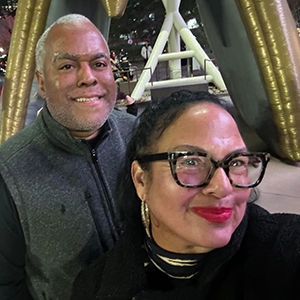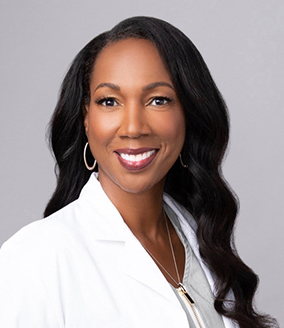BLACK EXCELLENCE: AVERY FORD, M.D.
Date posted: July 15, 2024
In his practice, medicine is more than a healing
Avery Ford, M.D. received his medical degree from Georgetown University School of Medicine, where he graduated with distinction as a Health Justice Scholar. He earned a master’s degree in Medical Health Sciences from Touro University Nevada and bachelor’s degrees in both Molecular, Cellular & Developmental Biology and Spanish with a Minor in Leadership from the University of Colorado, Boulder.
From advocating for healthcare bills to legislators in our nation’s capital to tackling health disparities via community outreach events and screenings, Dr. Ford works to show up for patients in and outside of his clinical duties. As a Black and Latino physician, he understands the unique perspectives of historically marginalized populations and has translated that understanding into strategizing with pipeline programs through the AAMC and NMA Action Collaborative and founding the Black Men in White Coats chapter at Georgetown. He also served as the Early Career Physicians Section co-chair for the Medical Society of DC to encourage engagement and spearhead professional development opportunities for rising physicians. To him, donning a white coat as a minority in medicine is an opportunity to address common health burdens as an uncommon resource.
His efforts have not gone unnoticed, having earned scholarships and support from national stakeholders like Johnson & Johnson, National Medical Fellowships, the United Health Foundation, the Congressional Black Caucus Foundation, the Student National Medical Association as well as the District of Columbia Area Health Education Center (AHEC) and Center for Health Equity. Dr. Ford is stepping into a dual role of emerging clinician and patient advocate as an incoming emergency medicine resident at University of Central Florida.
Dr. Ford values a “lift while you climb” mindset and hopes to advance and expand diversity in medicine as a scholar and forward thinker. Aside from academics, Avery enjoys live music, the outdoors, and trying his hand at new recipes.
KNIGHT MOVES | Hotter than July!
Date posted:
BY CRAIG KNIGHT
We’re more than halfway through 2024, with July officially starting the third quarter in the business world. This month begins in earnest with the Fourth of July, which is often referred to as Independence Day. America’s independence from the British Empire is commemorated on this federal holiday. It has changed throughout the previous 248 years into a broader expression of pride and patriotism.
It is a common misconception that the delegates decided to pursue independence on July 2, 1776. The National Archives state that the Continental Congress approved the Declaration of Independence two days later, on July 4, 1776, albeit with significant changes. On July 4, however, only two delegates — secretary Charles Thompson and president John Hancock — signed the agreement. Hancock wrote first, creating the expression “put your John Hancock on ” — which means to sign something with a bold, huge script.
Delegates finally started signing the paper on August 2, 1776. John Adams predicted that July 2 would be the day for the annual celebration of independence. Adams predicted in a letter to his wife Abigail that the festivities would feature sports, bonfires, parades, and fireworks — many of which are still common Fourth of July traditions today.
The Summer Olympics in Paris is also noteworthy! I’m excited to watch our men and women compete internationally, especially in sports I love to watch — basketball (where four Las Vegas Aces represent the women’s team), track and field, gymnastics, diving, swimming, and more! Let’s go!
(Speaking of sports, congratulations to the NBA world champion Boston Celtics NBA World Champions and Finals MVP Jaylen Brown.)
Several awareness months fall in July, such as: National Minority Mental Health Awareness Month, Disability Pride Month, Sarcoma and Bone Cancer Awareness Month, National Ice Cream Month, and National Grilling Month — for just a few examples.
As we celebrate everything there is to do this month, let’s do it responsibly! Until the next Knight Moves, educate yourself and share the knowledge with others. God bless you!
Rep. Alexandria Ocasio-Cortez Highlights President’s Actions to Lower Housing Costs
Date posted:
Representative Alexandria Ocasio-Cortez visited Nevada to highlight President Biden’s actions to lower housing costs and support renters and homebuyers. Rep. Ocasio-Cortez met with Graciela Rodriguez, a local renter, and Michelle Merced, a Las Vegas housing advocate, in North Las Vegas, where corporate landlords have bought hundreds of homes and raised housing costs on families.
Rep. Ocasio-Cortez highlighted the contrast between President Biden’s work to address rising housing costs and hold corporations accountable for rent gouging by cracking down on corporate landlords and private equity firms, and Donald Trump’s housing plans, which would drive up rental prices and put the dream of homeownership out of reach for so many families.
“When it comes to housing, who we elect into office matters: While President Biden is taking action to bring down prices and make sure working families can find an affordable home, Donald Trump would actually spike costs on our families,” said Ocasio-Cortez. “If elected, Trump will side with the same corporations who are buying up single-family homes in our neighborhoods and raising the costs of rent, but Joe Biden is taking them on — cracking down on rent gouging and holding corporations accountable.”
In March, President Biden visited Las Vegas to outline his agenda to bring down the cost of housing and address the shortage of affordable homes that Donald Trump’s failed policies helped create. In Nevada, President Biden has invested over $1 billion towards affordable housing to keep homeowners and renters in their homes, and his aggressive plan would provide $10,000 for first-time homebuyers and $25,000 for first-generation homebuyers.
Meanwhile, Trump’s record on housing is atrocious: He tried to gut rental assistance programs that make housing more affordable. He tried to triple rents on the poorest Americans in federally subsidized housing — including low-wage workers, the elderly, and people with disabilities — putting nearly one million children at risk of homelessness.
HISTORIC BLACK VEGAS: What can we learn from the Nevada Test Site?
Date posted:
BY CLAYTEE D. WHITE
My April visit to the former Nevada Test Site, now the Nevada National Security Site, introduced me to locations that took my breath away. First, I saw Sedan Crater, then the Apple II House and finally Frenchman’s Flat among lots of other historical spaces.
Sedan Crater is 320 feet deep with a diameter of 1280 feet. Standing on the rim, beyond a barrier, it feels as if you are being pulled by this vast void that was created on July 6, 1962 as part of Operation Plowshare. This hole is scary. It is the largest human-made crater in the United States and is listed on the National Register of Historic Places. This, of course, was an underground test. Miners were employed to plant these devices into the earth using complicated technology. Many Blacks from the Westside worked as miners drilling tunnels and holes and constructing shafts. The dangerous part seemed to have been the re-entry tunnels dug to retrieve equipment after nuclear blasts.
The most fascinating stop on our tour was the Apple II House. It is a two-story structure made of wood and would have been right at home where I grew up in rural North Carolina. Approaching it down a short lane, this typical looking house was quietly elegant but completely bare. No paint remained. The chimney grew up from the ground to a few feet above the roof line. Each room had windows and there was a back and a front door but you are not welcome to enter because all the innards were in disarray. Apple House was 7,500 feet from ground zero of the 1955 Apple 2 test. This house was built in an effort to determine the seismic effects of the atomic test on a typical home. The explosion was 29 kilotons — and this house still stands.
One of our final stops was Frenchmen’s Flat, where the first test took place in January 1951. On December 18, 1950, President Harry Truman authorized the establishment of a 680 square-mile portion of the Las Vegas Bombing and Gunnery Range as the Nevada Proving Ground. In 1955, this area became the Nevada Test Site. And today it’s the NNSS. Fourteen above-ground nuclear tests were conducted at Frenchman Flat. That January 1951 test broke storefront windows in Las Vegas. Today, this old test site has evolved to include subcritical experiments and other Stockpile Stewardship programs designed to ensure the nation’s remaining nuclear weapons remain safe, secure, and effective without full-scale nuclear testing. In addition, the emergence of global and homeland security threats has resulted in a further shift in the NNSS’ mission toward planning, experimentation and training to prevent and counter those threats.”
To learn more about this history and about future opportunities, take a tour and conduct some research at the Atomic Museum, which “uses lessons of the past and present to better understand the extent and effect of nuclear testing on worldwide nuclear deterrence and geopolitical history.”
Is this still an industry where Blacks can play a role? Do Blacks want a role?
Bracers For What Ails America
Date posted:
BY LOUIE OVERSTREET
Some of the problems our nation is facing are mild enough to be dealt with by a glass of tonic water with a lemon wedge. Some can be handled with mixed drinks. Others are so severe that tequila shots are needed — and if not corrected, present clear and present dangers to America.
Those of you who read this column (or my ad nauseam Facebook posts) may recall that I suggested the establishment of federal commissions to develop recommendations for the following: America’s future needs; crime, punishment, and justice; healthcare; global alliances; need for a constitutional convention; race, gender, and sexuality; repatriation of critical manufacturers
Sadly, my suggestions never generated the needed crowd of enthusiasts, and I was tabbed as a latter-day Chicken Little.
My column word count limit does not enable me to address each individual problem — thus, I can only list a select number of issues in each of the three categories without noting potential solutions.
Tonic water and lemon wedge size problems will not cause an upset stomach to achieve: These problems can be addressed by providing incentives that can address the attitudes associated with education, equality, hate, religion, and tribalism.
Mixed drink size problems will cause a mile upset stomach to pull off:
These problems can be solved by our hopelessly divided federal government passing laws to address affordable healthcare/Social Security, criminal justice system, dark money in politics, economic disparity, gerrymandering, immigration, and voting rights.
Trying to solve these problems will cause both an upset stomach and bad headache, as they will require constitutional amendments to solve. They include balanced federal budgets, the ERA, and term limits for members of Congress and Supreme Court justices.
If none of the three bracers I mentioned work for you, then America’s nearly 250-year run will come to an unceremonious end.
P.S. Teetotalers: this is Vegas, so drink references are metaphors for the strength of effort needed to bring change or prevent things from happening.
What do you see in the mirror?
Date posted:

BY KIMBERLY BAILEY-TUREAUD
At different stages of our life’s journey, we pause to look in the mirror and see our physical selves.
When we take that occasional glance, what might be overlooked is the point of our existence. Are you living the existence you had imagined at this point in your life?
The intensity of stress can be felt when we are traveling life’s path to satisfy spectators, or fulfill a political agenda that makes others feel comfortable. We all have a divine order given by the blessing of life. Your stay on this mighty planet is temporary, and the impact you make should be driven by your deepest passions.
Time waits on no one, and you are the timekeeper of your progression or regression. The life you always imagined for yourself should consist of intentional movements made every day. Ultimately, it is your peace, your love, and your life that must be protected.
That man or woman in the mirror should be greeted with pride and a smile. Yes, you DID IT! The walk toward fulfillment must be fearless. Courage is the greatest attribute in one’s life. It might get lonely — but you came into this world on your own and you will leave it by yourself.
The greatest feat is stepping into your purpose. Your peace is mandatory. It’s ALL up to you. Go inside your spirit and ask the questions that most define as selfish. But it is important to DO YOU. LIVE! LIVE! LIVE! By any means necessary.
LETTER FROM THE PUBLISHERS: Father figures large in our lives
Date posted: July 13, 2024
It is HOT in July, and this month’s edition of Las Vegas Black Image matches the temperature outside.
Lela Rochon has always been among our most gifted and beautiful performers, and our cover story celebrates her triumphant return to Hollywood — with a starring role in the forthcoming “Terry McMillan Presents: Tempted by Love.”
Elsewhere in this issue, brought to you by contributing writers and an executive publishing team working tirelessly to bring you the best:
- Students are coming up at Cox Communications’ annual Back to School Fairs, which provide a wealth of resources for Clark County students preparing for a successful school year
- We profile artist Andre Hines, who is using his creative gifts to give voice to people living with autism
- The Las Vegas Raiders bring Black-owned businesses to the forefront at their Juneteenth “Family Reunion”
- Checking in with Rep. Alexandria Ocasio Cortez, who paid a visit to North Las Vegas for a conversation about affordable housing
- Our young people are doing it big! We celebrate their accomplishments at Wells Fargo’s Junior Investment Club Competition, and congratulate Ross Grayson and the Las Vegas Chapter of 100 Black Men of America
These kinds of features are why Las Vegas Black Image exists — and why we’re grateful for your loyal readership and support for Nevada’s ONLY Black owned magazine with wide distribution in our state. Pick up your FREE issue at Albertsons, Vons, Mario’s, and Whole Foods stores.
Rise,
Charles Tureaud & Kimberly Bailey Tureaud
Publishers
(702) 615-8216
cdalasvegas@gmail.com
LasVegasBlackImage.com
Overcoming Barriers to African-American homeownership
Date posted:
BY KIMBERLY SMITH
Homeownership has long been a cornerstone of the American Dream, representing stability and wealth building. However, African-Americans face unique challenges that contribute to lower homeownership rates compared to other ethnicities. Understanding and addressing these barriers is essential to bridging the wealth gap and empowering our communities.
Historical Discrimination and Systemic Racism
One of the most significant factors is the legacy of redlining and discriminatory lending practices that have historically excluded African-Americans from homeownership opportunities. Even today, African-American buyers often face higher interest rates and less favorable loan terms. This systemic racism has long-lasting effects — making it harder for African-Americans to build intergenerational wealth.
Economic Disparities
Economic inequalities, including lower average incomes and higher unemployment rates, also play a crucial role. These disparities mean that African-Americans often have less savings for down payments and are more likely to struggle with debt — making it difficult to qualify for mortgages.
Lack of Financial Literacy and Education
Financial literacy is another critical issue. Many African-Americans may not have access to the necessary education about the home buying process, financial planning, and credit management. This lack of knowledge can lead to misunderstandings about affordability and eligibility for home loans.
Steps Toward Change
Despite these challenges, there are ways to increase African-American homeownership. Promoting financial literacy through community programs can equip potential buyers with the knowledge they need. Additionally, advocating for fair lending practices and supporting policies that aim to close the racial wealth gap can create more equitable opportunities.
By addressing these barriers head-on, we can help more African-Americans achieve homeownership, thereby fostering financial stability and closing the wealth gap. With the right guidance and resources, we can turn the tide and create lasting change for future generations.
As a broker salesperson, I pride myself with educating my clients throughout the process to make sure it’s a pleasurable experience. There are down payment assistance programs and dollars available for those that qualify.
Homeownership is possible! Please call me, the Queen of Real Estate! Kimberly Smith | 702-291-7098 | www.kimberlysmith.realtor | NV.Lic. No. BS.146388
YOU! HAVE THE POWER | Protecting mental health in BIPOC communities
Date posted:
BY DR. ELLEN BROWN
Have you ever come across Bebe Moore Campbell National Minority Mental Health Awareness Month? During regular searches for engaging topics, I came upon this important observance. You may already be familiar with it, or it could be a lesser-known fact. Regardless, I found it intriguing and immediately delved into learning more about this month — named in honor of the late African-American author, journalist, and teacher who worked tirelessly as an mental health advocate and wrote three bestsellers on the topic.
As for the “minority” population taking front and center, it suggests that the discussion revolves around issues and challenges that disproportionately affect people of color. This is true, but the research of National Alliance on Mental Illness shows it is more complex than singling out specific groups of people by ethnicity, gender, or socioeconomic factors.
Bebe Moore Campbell passed away in 2006 at the age of 56. She was known as a literary trailblazer whose fiction writing topics often focused on the impact of mental health, racism, culture, and community. One of her first publications was written in 1992, “Your Blues Ain’t Like Mine” — and another, “72 Hour Hold,” came in 1995. These novels are examples of her compelling messages, which told stories of modern-day life in settings that portray the continuing stress and pain that has sometimes defined Black life in America.
Why is this important? One research study suggests that “the adult Black community is 20% more likely to experience mental health problems.”
A search for Black psychiatrists and mental health professionals in Las Vegas resulted in a significant number of men and women educated, prepared, and available to serve our community. If ever there was a time to seek and find help, it is now. Here are a few resources:
Black and African American Psychiatrists in Las Vegas: https://www.psychologytoday.com/us/psychiatrists/nv/las-vegas?category=african-american
NAMI works to educate, support, advocate, listen and lead to improve the lives of people with mental illness and their loved ones: https://www.nami.org/about-mental-illness/warning-signs-and-symptoms/
Call the NAMI HelpLine at (800) 950-6264, text “helpline” to 62640, or chat online. In a crisis, call or text 988.
Let’s continue this conversation by using YOUR! POWER! Email: Ebrown.nci@gmail.com | (702) 491-0490
HEALTHIER YOU: Understanding uterine fibroids in Black women
Date posted:
BY DR. MARGUERITE BRATHWAITE OB-GYN
The month of July is Fibroid Awareness Month. As African-American women, we are accustomed to hearing many of our friends, family members and others speak about having uterine fibroids or knowing someone who is suffering from them.
It is no secret that African-American women suffer disproportionately, yet we understand little about what causes this disparity.
Uterine fibroids, also termed leiomyomas or myomas, are the most common benign gynecologic tumors; ultrasound evidence shows that more than 80% of African-American women and approximately 70% of white women will have uterine fibroids by age 50. However, because only 20% to 50% of all women with fibroids experience related symptoms, and because screening for fibroids is not routinely performed, the true incidence is difficult to ascertain.
For women in their 40s and 50s, abnormal bleeding is the most common reason to seek gynecologic consultation, and fibroids are one of the most common causes of this symptom. Pelvic pain, another common reason for gynecologic consultation, is a symptom often associated with fibroids.
These symptoms markedly alter the quality of life and reproductive health in affected women. Treatment options include many alternatives to hysterectomy, including medical therapies, minimally invasive surgery, uterine artery embolization, and magnetic resonance — guided focused ultrasound surgery. Hysterectomy, however, remains the most common intervention, and in the United States, fibroids are the leading indication for hysterectomies.








